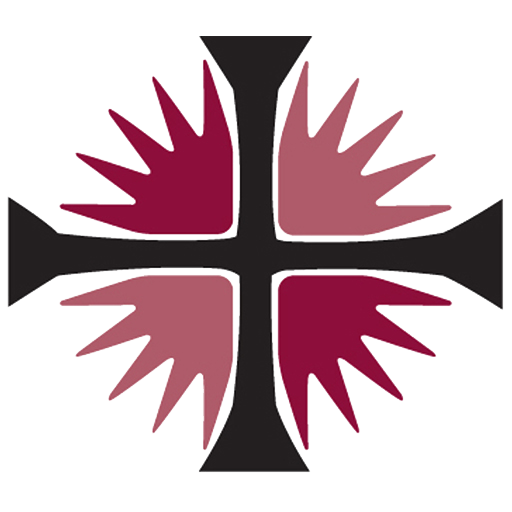
These are resources for the Opioid Crisis: The Faith Community Responds. Click the tabs below to be directed to a list of our Partners, a collection of Handouts and Guides, or Websites related to the Opioid Crisis and Substance use.
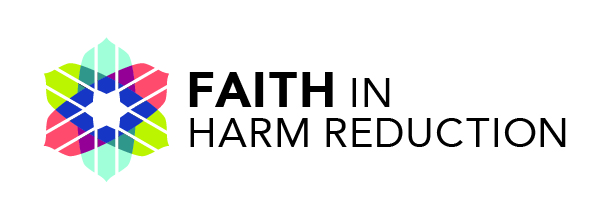
Communities of faith and their leadership possess significant influence and potential to reshape discourse on the drugs issue and opioid crisis through the promotion of theological praxis rooted in liberation, reform, and justice.
Since its inception in Fall 2017, Faith in Harm Reduction has contributed thought leadership, vision, and direction for overdose and other harm reduction advocacy events and conferences. We are dedicated to building capacity and mobilizing communities at the intersection of harm reduction and faith-based organizing. Born from conversations with communities of faith, harm reduction organizations, and unions of people who use drugs throughout the United States, Faith in Harm Reduction fills a unique role as a connector, community mobilizer, and capacity builder, fostering innovative-and previously untapped—cross-sector collaborations to expand and strengthen harm reduction in principle, practice, and policy.
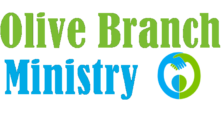
Description: Olive Branch Ministry was founded by Karen Lowe and Michelle Mathis as a way to bring faith-based harm reduction to the Foothills area of NC. Our desire is to extend hope and extend life through nonjudgemental interactions with those we are called to serve. Olive Branch initially partnered with local agencies and faith groups to provide health and wellness education, HIV testing and homeless outreach to Catawba County and the surrounding area. As years passed, Olive Branch’s outreach ministry grew and as of 2018, serves seven counties in western North Carolina. The organization partners with local human service organizations, faith communities, hospitals, mental and public health agencies, and private corporations and citizens to work with those in need of harm reduction services.What: Homeless Outreach, Social Justice Advocacy, and Voter Education, Syringe Exchange and Naloxone Distribution, Where: Seven counties in western North Carolina Why: We believe that we are called to serve marginalized people through faith-based Harm Reduction. This takes various forms, depending on who we are working with and what their needs are. We believe in honoring and respecting each’s journey. No judgment. Just Love. We are about one mission: Extending Hope. Extending Life.

Who: NCHRC is a comprehensive harm reduction program. NCHRC engages in grassroots advocacy, resource development, coalition building and direct services for people impacted by drug use, sex work, overdose, gender, STIs, HIV, and hepatitis. NCHRC also provides resources and support to the law enforcement, public health, and provider communities. Vision: We believe that the key to bringing law enforcement, sex workers, crack smokers, injection drug users and others who engage in high-risk activities and services closer to prevention and health services are to treat every person, regardless of their circumstance or condition, with dignity and respect. NCHRC’s nonjudgmental approach allows our members to move through a process of self- discovery, and self-empowerment at their own pace. By developing relationships based on honesty, community, tolerance, and cooperation, our staff helps people live healthier and more fulfilling lives while raising the health index of the community. What is Harm Reduction: Harm reduction refers to a range of public health policies designed to reduce the harmful consequences associated with drug use, sex work, and other high-risk activities. Harm reduction is an alternative and, in some cases, a complement to the more conventional approaches of demand and supply reduction.
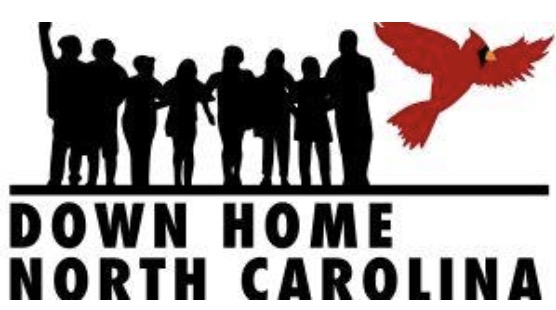
Down Home, North Carolina is a new organizing project led by the working people of North Carolina’s small towns and rural communities. Together, we are taking action to increase democracy, grow the good in our communities, and pass a healthy and just home down to our grandbabies. Who: We are neighbors, rooted in the community, coming together to grow our state into a place that works for us, not just the rich and powerful. We organize to grow democracy and improve the quality of life so that our grandbabies inherent a state that is healthy and just. Vision: All are welcome in Down Home North Carolina. We unite to build the power and raise the voices of working people in small town and rural North Carolina in order to take action on the issues that matter to us. By weaving together our different experiences, we can shape a democracy that serves working people, where our labor is valued, and our food, water, and land are healthy. Come on in Y’all, we’ve got work to do. Where: We are based in Western North Carolina.
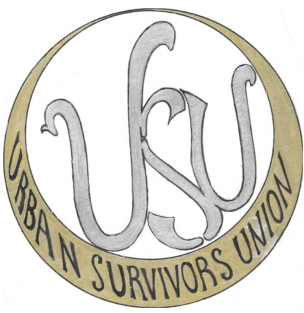
Who: NC Urban Survivor’s Union is a union of former and active drug users dedicated to improving the health and social circumstances of people that use drugs. What:
- Naloxone Distribution, Workshops/ Classes, Overdose Prevention, HIV, HCV, Hepatitis and STI prevention, substance use moderation, Harm Reduction, Syringe Exchange, Working with people that use drugs, Consumption rooms, Safe Injection Facilities
- Services: Health coach, Syringe Access, Sterile Supplies Bio-hazard collection, Naloxone Distribution
- Groups: Community Organizing: Harm Reduction Support Group
Where :1114 Grove Street Greensboro, NC 27403 Why : Urban Survivor’s Union is a grassroots coalition of drug users dedicated to ensuring respect, dignity and social justice for our community. We contest the dominant culture’s misguided attitudes and biases about drug use and drug users. USU stands for a new direction for drug users. Our programs are centered on improving conditions for people that use drugs, their families, and communities.
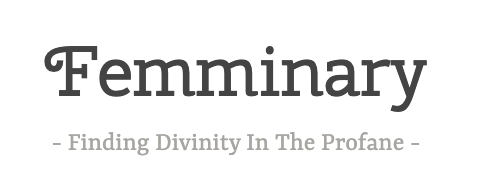
Blythe Barnow: “I went to seminary to learn how to hold spiritual space for the communities I come from. People deemed “too much” for the church. Too difficult, too poor, too addicted, too queer, too sexual, too political. These are the people who raised me. These are the people who taught me about the sacred. I put myself through seminary by working at the Harm Reduction Coalition. Now that I’ve graduated, I am preaching, leading workshops, creating rituals, and pursuing ordination in the United Church of Christ (UCC).”
Blythe created a service called Naloxone Saves to support faith communities and call them to engage and respond to the crisis with spiritual tools.
FOUNDATIONS OF HARM REDUCTION
Why Harm Reduction Works: – Provides a space for people to be open about their drug use and sexual behavior so it’s not hidden, perpetuating feelings of isolation – Values people and their expertise so they feel empowered to determine and voice their own hierarchy of need and next steps are clear between provider and participants – It is rooted in evidence-based practices that have shown decreases in health and social harms – Keeps individuals engaged in care if they relapse and at any stage in their drug use
STIGMA REDUCING LANGUAGE HANDOUT
Drug use carries with it a lot of stigmas and one of the ways to work on reducing this stigma is person-centered language. This document lists words to avoid and suggestions of what to say instead.
DRUG USE GLOSSARY
This glossary was developed in partnership with the Peer Network of New York, a group of harm reduction support specialists who provide vital services including health education, testing (for HIV and Hepatitis C), harm reduction guidance, recovery coaching, and community outreach. They have lived experience and can relate to the community in a unique way, and are a crucial asset in building community health and well-being.
We created this glossary to provide guidance on language to avoid when talking about drug use and people who use drugs, with the intention of moving away from stigmatizing and dehumanizing language and toward people-first language that confers dignity and respect.
For people who use drugs, or who formerly used drugs, stigma can be a barrier to a wide range of opportunities and rights. People who are stigmatized for their drug involvement often face social rejection, labeling, stereotyping, and discrimination, even in the absence of any negative consequences associated with their drug use. This manifests in a variety of ways, including denial of employment or housing.
The public’s perception of drugs is often not based on scientific evidence. You can help end stigma by learning the facts about drugs, drug use, and evidence-based drug treatment and sharing the information with others. The way we talk about drugs and the people who use them can create or uphold stigma. Focus on the whole person, not a behavior.
NC INJURY AND VIOLENCE PREVENTION BRANCH STOP STIGMA GUIDE
HOW TO ADMINISTER NALOXONE
This is the North Carolina Harm Reduction Coalitions handout about how to use and administer Naloxone. Naloxone is a medication designed to rapidly reverse opioid overdose. It is an opioid antagonist—meaning that it binds to opioid receptors and can reverse and block the effects of other opioids. It can very quickly restore normal respiration to a person whose breathing has slowed or stopped as a result of overdosing with heroin or prescription opioid pain medications.
Developing a Harm Reduction and Trauma Informed Practice
WHAT TO DO IF YOU FIND A SYRINGE
IF YOU FIND A SYRINGE HOW DO YOU DISPOSE OF IT?
WAYS CONGREGATIONS CAN GET INVOLVED
This is a brief list of some of the ways congregations can get involved in Harm Reduction and work around the overdose crisis.
FACTSHEET ABOUT THE DEATH BY DISTRIBUTION BILL
This is a factsheet by the North Carolina Harm Reduction Coalition about the Death by Distribution Bill that is Currently in the North Carolina Legislature.
Death by Distribution allows people who distribute a drug that results in an overdose death to be charged with murder. That means that drug users who share with friends, partners who use from the same supply of drugs, and people who sell to support a drug habit could face murder charges even when the death is an accident.
Please call/email your representative and urge them to VOTE AGAINST House Bill 474 because 1) it will hurt our 911 Good Samaritan law and make people more afraid to call 911 to report an overdose; 2) merely increasing penalties for drug offenses hasn’t worked to curb drug use over the past few decades and won’t work now; 3) evidence from other states indicates that the majority of people charged with death by distribution are friends and family of the deceased–not drug dealers, as the bill claims to target
HOW DRUG INDUCED HOMICIDE LAWS WEAKEN GOOD SAMARITAN LAWS
This is a factsheet from the NC Harm Reduction Coalition about how the Drug-Induced Homicide Laws Weaken Good Samaritan Laws.
THE NORTH CAROLINA DEPARTMENT OF HEALTH AND HUMAN SERVICES
Vision: To tackle this health crisis, the NC Department of Health and Human Services is working to connect people with preventative healthcare, substance use disorder treatment, and community supports. This is a complex issue requiring partnership from many sectors and is an effort that needs to be supported through funding and resources to be successful. Learn more below about how North Carolina and its partners are working to reduce opioid overdose deaths by 20 percent by 2021. What: The website contains a resource guide, background information, and Data on the Crisis. https://injuryfreenc.shinyapps.io/OpioidActionPlan/

Injury Free NC
What: InjuryFreeNC.org provides the best science about injury and violence prevention strategies focused on improving population-level health. The materials on the site are created by a team of injury prevention experts from the University of North Carolina at Chapel Hill’s Injury Prevention Research Center and the NC Division of Public Health’s Injury and Violence Prevention Branch with the input of numerous other partners. The team engages experts in each topic area to ensure the latest, consensus-driven information is provided. Why: We want to keep North Carolinians safe from injury and violence so that they can live to their full potential. While we often accept injuries, they can be prevented. Injury Free NC is North Carolina’s unified voice for injury prevention. Here you will find the best-available information related to preventing injuries and violence in North Carolina, access to experts, and ways to connect with the injury prevention community that works to keep North Carolina safe.
NALOXONESAVES.ORG
Who: NaloxoneSaves.org is a website designed to educate pharmacists and the public about the North Carolina State Health Director’s statewide standing order for naloxone. The North Carolina Division of Public Health, Injury and Violence Prevention Branch’s Poisoning and Drug Overdose Prevention Program works in collaboration with many partners statewide to address drug overdose in North Carolina including, the UNC Injury Prevention Research Center. Together, we bring you this website.The website is broken out in to sections for Naloxone Dispensers, User Survey, General Information, and a locator of where to get Naloxone.
The purpose of this website is to:
Provide education about naloxone use and overdose prevention
Offer a method for pharmacies to activate their standing order
Gather information about naloxone use and attempts to reverse overdoses
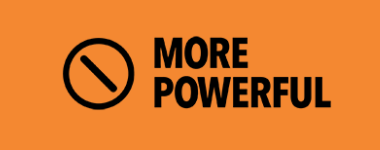
MORE POWERFUL NC
Led by NC Attorney General Josh Stein and NCDHHS Secretary Mandy Cohen to raise awareness around the devastating impact of the opioid crisis in North Carolina, the More Powerful NC campaign is anchored in the message that together, we are more powerful than opioids—and we can all help play a part in ending the epidemic
Opioid-related overdose deaths in North Carolina have doubled in the past ten years alone, and the problem only continues to grow and devastate lives. Created by the North Carolina Department of Justice and the Department of Health and Human Services to raise awareness of the scope and danger of the opioid crisis, and as a call for action that North Carolinians can rally behind, the “More Powerful” campaign is anchored in the message that together, we are more powerful than opioids, and we can all help play a part in ending the epidemic. The campaign outlines real, actionable steps for the safe storage, use, and disposal of pain medications, as well as resources for finding treatment and recovery support.
The campaign is funded by the NCDOJ, the NCDHHS, their partners and generous donors.

injuryfreenc.shinyapps.io/OpioidActionPlanNC OPIOID ACTION PLAN DATA DASHBOARD
In 2017, over 5 North Carolinians died each day from an unintentional opioid overdose. From 1999-2017, more than 13,000 North Carolinians lost their lives to unintentional opioid overdose. To combat the opioid crisis, the North Carolina Department of Health and Human Services worked with community partners to develop North Carolina’s Opioid Action Plan (NC OAP). The NC OAP launched in June of 2017 and established thirteen data metrics to track and monitor the opioid epidemic. The opioid data dashboard on this site is meant to provide integration and visualization of state and county-level metrics for stakeholders across NC to track progress towards reaching the goals outlined in NC OAP. For more information on the NC OAP visit: https://www.ncdhhs.gov/opioids

THE DRUG POLICY ALLIANCE
Description: The Drug Policy Alliance works to change drug policy no longer arrest, incarcerate, disenfranchise and otherwise harm millions – particularly young people and people of color who are disproportionately affected by the war on drugs. Additionally they work to make sure new policies reduce the harms of both drug use and drug prohibition, and to promote the sovereignty of individuals over their minds and bodies. Why : The Drug Policy Alliance envisions a just society in which the use and regulation of drugs are grounded in science, compassion, health and human rights, in which people are no longer punished for what they put into their own bodies but only for crimes committed against others, and in which the fears, prejudices and punitive prohibitions of today are no more. Comments: This website is a great resource that has tons of drug fact sheets, information about harm reduction, and resources.
Never Use Alone
If you have no choice but to use alone, call us! You will be asked for your location, about any allergies, or medical conditions. An operator will then stay on the line with you while you use. If you do not respond after a set amount of time after you\’ve used, the operator will notify emergency services of your location, allergies/conditions, and possible overdose. If you call, and cannot connect with an operator, please call (931)304-9452.
To provide a life saving point of contact for people who use drugs. We’re there to help you in the event of an overdose.We will never shame, judge, or preach to stop. If you are interested in getting help, we have resources available for you, but we will never push them on you. We recognize that you will only quit, when you’re ready to quit. We just want to help keep you a live until that time comes!
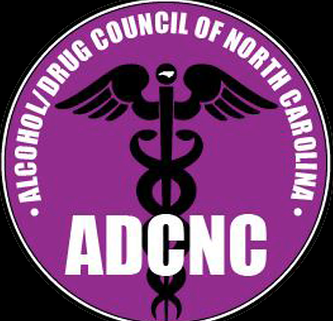
ALCOHOL DRUG COUNCIL OF NORTH CAROLINA
Who: The Alcohol / Drug Council of NC provides information and referrals to alcohol and drug treatment. What: We also provide educational programs and materials to businesses, community groups, families, and individuals. Where : Call 800.688.4232 or Text 919.908.3196 Why :To reduce human suffering and the economic cost of alcoholism and other substance use disorders. We advocate for prevention, early interventions and treatment that includes a system of care.
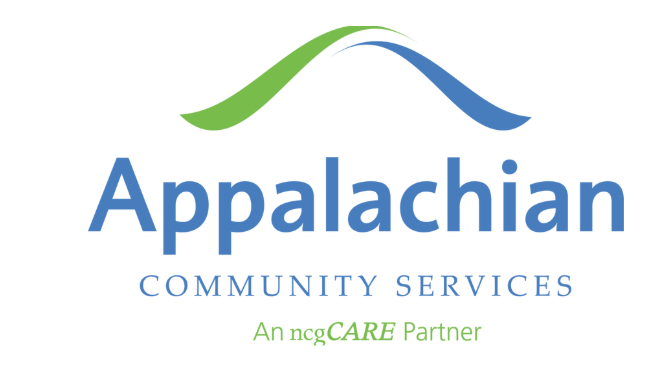
APPALACHIAN COMMUNITY SERVICES
What: Appalachian Community Services provides Mental Health, Behavioral Health, Substance Use, and Developmental Disability services to individuals, families, and communities within the seven western counties of North Carolina. We provide a wind range of walk-in, psychiatric, substance abuse, and crisis services to adults and children. Where: Cherokee County, Clay County, Haywood County, Graham County, Macon County, Swain County, The Peachtree Center and The Balsam Center Why:Our mission is to promote the emotional and physical well being of consumers in a safe and respectful environment. We are committed to providing a wide continuum of services to effectively meet the changing needs within the community.

LEAD NATIONAL SUPPORT BUREAU
Who: LEAD stands for Law Enforcement Assisted Diversion program and this organization is the national orginzaiton. What: Law Enforcement Assisted Diversion (LEAD) is a community-based diversion approach with the goals of improving public safety and public order, and reducing unnecessary justice system involvement of people who participate in the program. In a LEAD® program, police officers exercise discretionary authority at the point of contact to divert individuals to a community-based, harm-reduction intervention for law violations driven by unmet behavioral health needs. In lieu of the normal criminal justice system cycle — booking, detention, prosecution, conviction, incarceration — individuals are instead referred into a trauma-informed intensive case-management program where the individual receives a wide range of support services, often including transitional and permanent housing and/or drug treatment. Prosecutors and police officers work closely with case managers to ensure that all contacts with LEAD® participants going forward, including new criminal prosecutions for other offenses, are coordinated with the service plan for the participant to maximize the opportunity to achieve behavioral change.

FAITH & RELIGION IN RECOVERY RESOURCE
There are a variety of factors that can contribute to addiction. On the surface, addiction can be caused by physical changes in the brain that make the body crave certain types of drugs. When a debilitating substance habit consumes someone’s life, they often look to a Higher Power to help give them the strength to get well. A spiritually-inclined treatment process helps thousands of addicts each year find the motivation necessary for recovery. The Faith & Religion in Recovery resource covers treatment methods and popular faith-based groups to help someone overcome addiction.What: https://www.drugrehab.com/recovery/faith-and-religion-in-recovery/ Where: Nationwide Why: The mission of Drugrehab.com is to equip patients and families with the best information, to overcome addiction & lead a lifelong recovery. When:24/7

ADDICTIONCENTER.COM
ADDICTIONCENTER.COM IS AN ORGANIZED WEB GUIDE THAT CONNECTS INDIVIDUALS WHO ARE STRUGGLING WITH ADDICTION AS WELL AS THEIR LOVED ONES TO TREATMENT OPTIONS, INFORMATION, AND THE HELP THEY NEED.
Who: A group of concerned individuals who started this site with our own money to provide what we felt is vital information to people seeking help throughout the country. We started the website with less than 50 pages and it has grown to a place today where we have over 500 pages of valuable resources and treatment options that are offered all over the U.S. What: We connect individuals who are struggling with addiction to different treatment options. We provide information on different types of addiction, different drugs, and different communities addiction affects. When: We’ve had the resource up and running for four years and have seen the recent spike in traffic and popularity over the course of the last two years. Where: We are based in Orlando, FL, however we offer treatment options all over the U.S. Why: Our organization meets the needs of individuals, and their loved ones, who are seeking help finding where to get treatment and what kind of treatment.
BLOOD ALCOHOL CONTENT CALCULATOR
Description: Blood alcohol content, or BAC, is an important number that helps determine the level of alcohol in a person’s bloodstream. The higher the BAC, the more alcohol is likely to have an impact on everything from coordination and balance to emotions and brain function.
What:Blood Alcohol Content Calculator
Where:https://www.sr22insurance.net/bac-calculator/
Why: To help prevent harm both to yourself and to others. To make tracking your BAC levels easier, consider using our BAC calculato. A BAC calculator will help do the math for you, providing an estimate of your current blood alcohol content.

WWW.HEALTHYLIFERECOVERY.COM – OPIOID DISORDER MEDICATION TREATMENT
HEALTHYLIFERECOVERY.COM IS A HELPFUL WEB GUIDE WHERE INDIVIDUALS AND THEIR FAMILIES CAN ACCESS INFORMATION ON ADDICTION TREATMENT AND ESSENTIAL SUPPORT TO EVERLASTING SOBRIETY.
Who: A team of highly trained professionals who have a high degree of empathy for the people that we work with. The connection that our clients feel with the staff is what makes Healthy Life Recovery different and creates a lifelong impact on the person receiving addiction treatment. What: Whether you are beginning your journey into sobriety or transitioning out of a residential setting, Healthy Life Recovery offers the clinical and experiential education you need. Our resources will sustain your recovery, enrich your soul and give you the tools to cultivate your best life. Where: We are located in San Diego, California, however, our educational resources on addiction treatment can be accessed by anyone anywhere. Why: We believe that one of the best ways to reconnect with your body is to use it to its fullest potential. Our core philosophy at our treatment center is to care for the whole body, mind, and soul. How: We provide opportunity to clients to enjoy experiential therapies, we promote education on the connection addiction has to the mind, body, and spirit, we give insight on emotional well-being in and out of the ocean through recreation and physical fitness training, and we offer education on nutrition and healthy eating habits to help people live a healthy lifestyle in sobriety.
